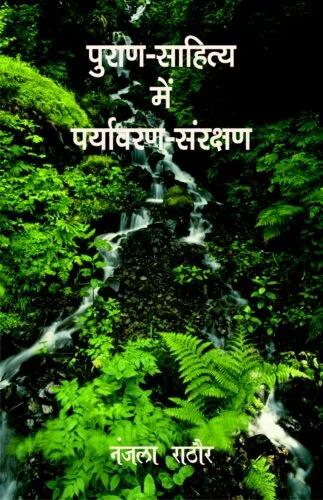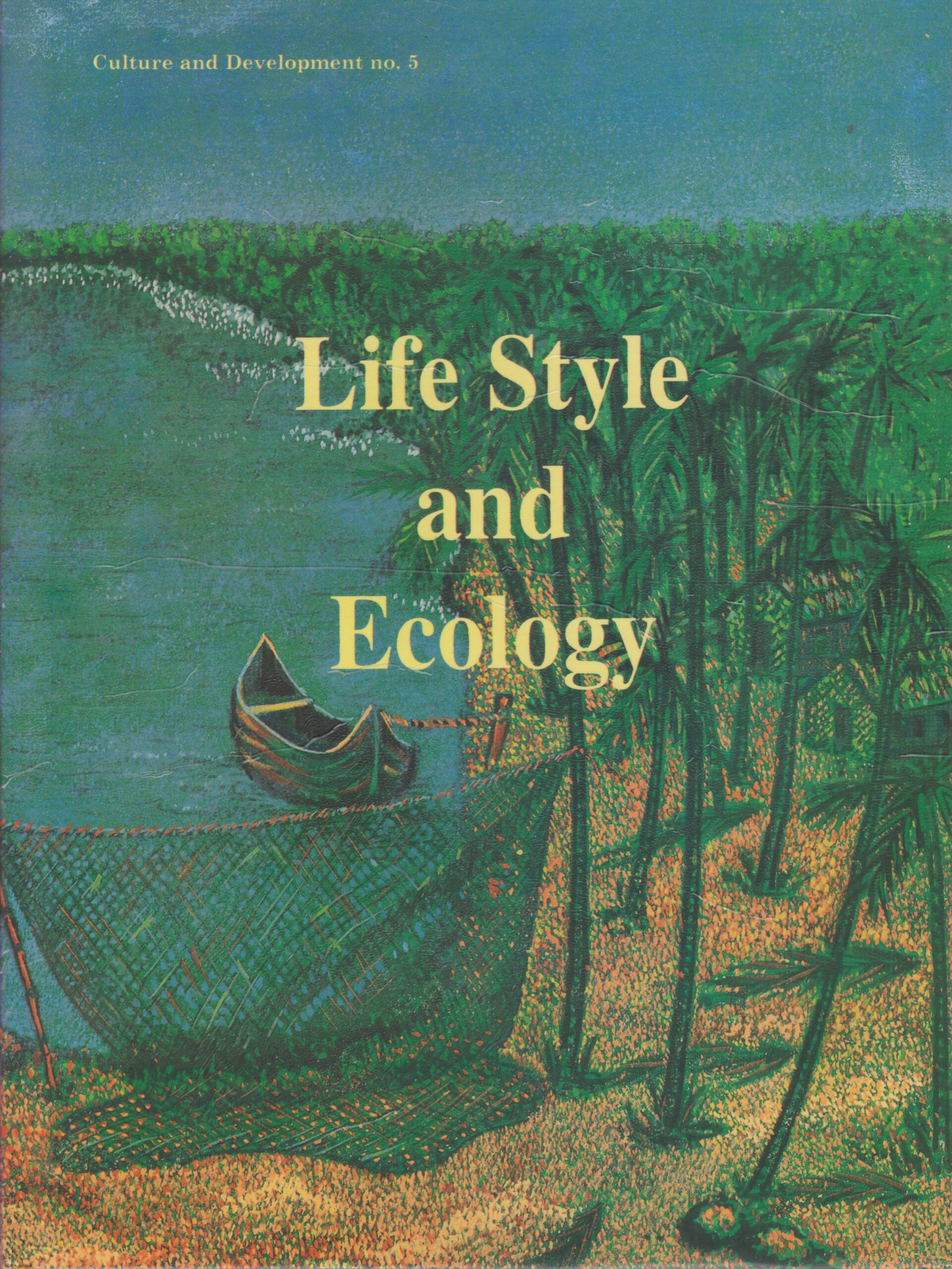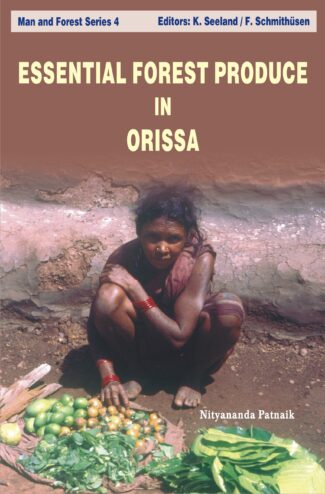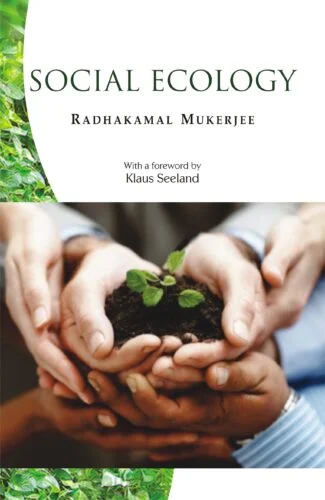

Purana Sahitya mein ...
Purana Sahitya mein Paryavaran Samrakshan
Environmental Protection in Pauranic Literature by: Nanjala RathoreHow important was environment in the ancient times as depicted in the Puranic literatures has been discussed in detail in this book.
₹300.00 Original price was: ₹300.00.₹270.00Current price is: ₹270.00.
ISBN: 9788186921180
Year Of Publication: 2001
Edition: 1st
Pages : xiv, 194
Bibliographic Details : Bibliography
Language : Hindi
Binding : Hardcover
Publisher: Decent Books
Size: 23 cm.
Weight: 450
How important was environment in the ancient times as depicted in the Puranic literatures has been discussed in detail in this book.

- Sale!Prakrti (5 Vols. Set) by: Kapila Vatsyayan
₹7,000.00Original price was: ₹7,000.00.₹6,300.00Current price is: ₹6,300.00.PRAKRTI : The Integral Vision explores the concept of the primal Elements (Sky, Air, Fire, Water, Earth, etc.) which has governed and determined the evolution of civilizations and cultures. This 5-volume collection is the outcome of a series of five successive but inter-locked seminars culminating into cross-cultural, multi-disciplinary understanding. The First Volume, Primal Elements: The Oral Tradition, focuses attention on the articulation of cohesive communities communicating with the Elements in continuous unceasing dialogue. To them the nature is not a matter of intellection; it is a question of life here and now. This is manifested in their primary myths and rituals which sacralize nature so that man can live as an integral part of the Universe. The Second Volume, Vedic, Buddhist and Jain Traditions, centres on the texts, probing deep into the Vedic rituals, Upanisadic philosophies and Jyotisa sastra. There is a prodigious consideration of the concept of maha-bhutas in Buddhism and Jainism. It also brings forth the many covergences and divergences of the view-points between and amongst these different streams of Indian thought. The Third Volume, The Agamic Tradition and the Arts, examines systematically the manifestation of the Elements in the Indian arts and their Agamic background. From the different vantage points of the architect, sculptor, painter, musician and dancer, the field is reopened here to discern the structure of the arts at its primal level. Experiences of the transformation of the gross to the subtle and the theories of aesthetics and cultural ecology emerge from such a captivating view-point. The Fourth Volume, The Nature of Matter offers a much-needed critical appraisal of modern scientific concepts with reference to traditional thoughts. It contains invaluable discussion on quantum theory and elementary particles, evolution of living matter, nature and function of matter, scientific philosophy and Buddhist thought, Sankhya theory of matter, ancient and medieval biology, mysticism and modern science, traditional cosmology, matter and medicine, matter and consciousness, etc. The dialogue created between the method of science and the method of speculation is invigorating. The Fifth Volume, Man in Nature, is a coming together of cultures and disciplines. Enchanting in their own way, the international community of scientists, philosophers, anthropologists, ecologists and artists, share in this volume the myths and cosmology of their respective societies and cultures. There emerges a most meaningful dialogue between those who live with the myths of primordial elements and those who have modified the tools of science to investigate the nature of matter. This 5-volume set, first of its kind, produced by the most distinguished specialists in the field, should enjoy a wide readership amongst philosophers of many different persuasions, scientists, theorists of art and culture, particularly ecologists and anthropologists seeking new insights into the phenomena of Nature.
- Sale!Life-style and Ecology by: Baidyanath Saraswati
₹600.00Original price was: ₹600.00.₹540.00Current price is: ₹540.00.As one of its significant programmes, the Indira Gandhi National Centre for the Arts (IGNCA) has, for sometime, focussed on the lifestyle studies addressing the fundamental questions concerning Mans relationship with Cosmic Order, his perceptions of Space and Time through the ages and across cultures, and his experience of Nature and how far he has evolved a symbiotic existential connection with it. The IGNCA has now launched forth a series of Pilot Studies which, through specific community studies, seeks to explore culture-ecology interrelationship in its myriad manifestations. Lifestyles and Ecology is the series first thematic monograph. With meticulous analyses of the lifestyles of the Himalayan pastoral nomads, the Lakshadweep islanders, and Kanyakumaris Mukkuvar fisherfolk, among others, the studies here show how these communities follow the spirit of the natural world: not in imitation, but in continuation of the primal vision. Delineating, thus, variegated cultural paradigms of these communities, with details like, for instance, of their belief systems, myths, rituals, folklore, songs, and their knowledge of cosmology as well as natural phenomena, the authors underscore the inseparability of nature and culture in the lived experience of traditional societies the world over. The book also carries a brilliant overview of ecology vis-a-vis traditional resource management systems. The authors are ecologists, anthropologists and folklorists of wide repute.
- Sale!Essential Forest Produce in Orissa by: Nityananda Patnaik
₹450.00Original price was: ₹450.00.₹405.00Current price is: ₹405.00.This volume is the 4th in the ongoing Man and Forest series a series trying to highlight the relevance of indigenous knowledge of various tribal communities in the sustainable management of forests and local resources more specially against the growing challenges of economic development vis-à-vis environmental hazards and a declining resource base. Orissas forests, covering a little over 57,000 sq km (or 36.72% of the states geographical area), are known to have a profusion of minor forest produce (MFP) which has been upgraded due to its importance for tribal livelihood and is called Essential Forest Produce (EFP) through the book. It comprises simple fodder and fuelwood to baffling medicinal herbs, besides numerous economically important plants yielding dyes, tannin, fibres, flosses, essential oils, edible fruits, seeds, leaves, honey among many other items. Yet, despite its enormous economic potential, about three-fourths of this forest wealth has so far been unutilized by the tribal communities largely because of its inaccessibility. With a holistic product profile of Orissas forests, an eminent anthropologist here looks for the rationale behind the vastly deficient utilization of its EFP identifying the entire range of causes: from the tribals incapacity to reach this forest resource to their exploitation by middlemen/traders/moneylenders to the larger forest policy issues. Dr Patnaik also proposes measures which would help tribals not only to actualize the inherent potential of EFP but, in turn, strengthen their economy as well. It is a painstaking empirical study of interest to social anthropologists, environmental activists, foresters, development economists, forest resource economists planners and policy-makers.
- Sale!Social Ecology by: Radhakamal Mukerjee
₹1,000.00Original price was: ₹1,000.00.₹900.00Current price is: ₹900.00.This book of Radhakamal Mukerjee, with an introduction of Klaus Seeland, is an authoritative study on social ecology. Social ecology is different in scope from human ecology. Since there is whole gamut of confusion about the term social ecology and its relation with sociology, here is an attempt to detail the essential principles of social ecology and its scientific fruitfulness for sociology.
This volume is an endeavour to present the major ecological concepts and processes which may help in refashioning the framework of sociology. It is also an attempt to deal with a comparative social ecology on which rest the foundations of comparative economics and sociology. Social ecology studies the place, occupation and time relations of persons and groups in their processes of competition, co-operation, conflict, accommodation and succession. It is a vast and virgin field orienting social phenomena on the basis of the give-and-take between life, mind and region.
This book is so comprehensive that it should contribute to a scientific classification of socialecological concepts and to the development of a methodology according to which social economy may form the basis of a new functional and quantitative sociology. Therefore, it should be a referral book for sociology students, teachers and researchers. - Sale!Indigenous Knowledge, Forest Management and Forest Policy in South Asia by: Klaus Seeland, Franz Schmithusen,
₹750.00Original price was: ₹750.00.₹675.00Current price is: ₹675.00.Reflecting the latest findings of a large research project that began about a decade ago this volume, the 5th in the ongoing Man and Forest series, highlights the relevance of indigenous knowledge of various South Asian tribal and rural communities in the sustainable management of forests and local resources more specially against the growing challenges of economic development vis-a-vis environmental hazards and a declining resource base. Not only the volume reiterates the relevance of indigenous knowledge as a development tool in this age of standardized, modern know-how applications, but also illustrates its enormous impact on the social development in tribal and rural areas. Not just in India but in the adjacent countries of Nepal and Bhutan as well are analysed forest policy issues. In these countries, particularly in the current scenario of regulation, the authors emphasise of both collective initiatives at the grassroots level and securing the locally accepted patterns of livelihood for the tribal and village communities. The volume includes widely varied case studies on the role of indigenous knowledge in forestry, community living, and joint management of local natural resources. This book consists of 17 papers, based on cross-cultural, interdisciplinary investigations of well-known scholars of forest management, ethno-botanists, social anthropologists and of the members of several local NGOs involved in either community forestry or village development programmes.







